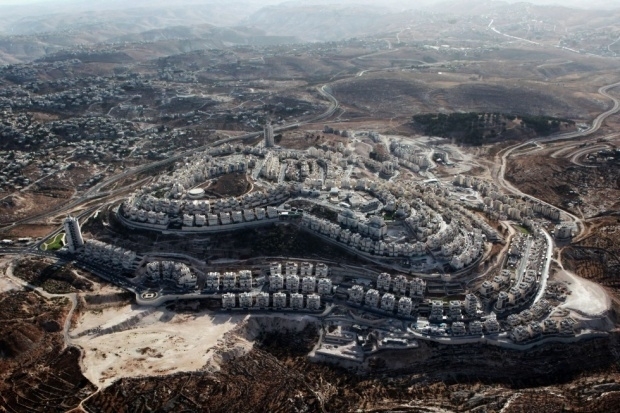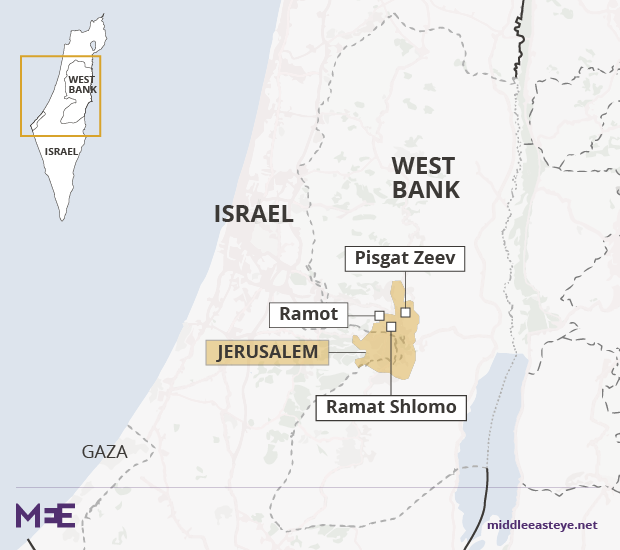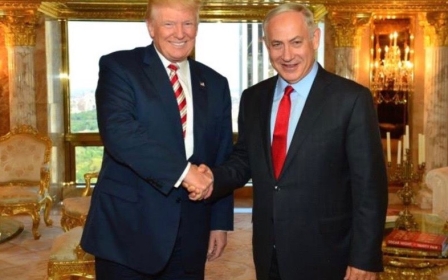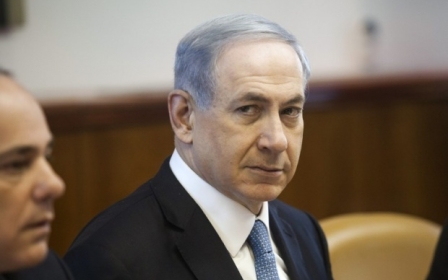Israel approves 566 new settler homes in East Jerusalem

Israeli authorities on Sunday approved building permits for 566 settler homes in occupied East Jerusalem, plans that had been postponed until US President Donald Trump took office, the city's deputy mayor said.
Meir Turjeman told AFP that city officials approved the plans that had been previously postponed at Prime Minister Benjamin Netanyahu's request, in the wake of a UN Security Council resolution in December against Israeli settlement building.
Haaretz reported that Netanyahu had informed members of the inner security cabinet on Sunday that he has decided to lift all restrictions on Israeli construction in East Jerusalem resulting from international diplomatic pressures, two senior officials who have been briefed on what transpired at the meeting said.
Turjeman said plans for some 11,000 other homes were also in progress in East Jerusalem, though he did not say when they could be moved forward.
The new permits are for homes in the settlement neighbourhoods of Pisgat Zeev, Ramot, and Ramat Shlomo, according to Turjeman, who also heads the planning committee that approved them.
"The rules of the game have changed with Donald Trump's arrival as president," Turjeman said.
"We no longer have our hands tied as in the time of Barack Obama. Now we can finally build."
READ: Why trade with Israeli settlements should not exist
Netanyahu said at the start of his weekly cabinet meeting that he intended to discuss with Trump the conflict with the Palestinians, Syria and "the Iranian threat" in what will be the first telephone conversation with the billionaire businessman since taking office.
Prior to the telephone conversation, Netanyahu said his top priority will be overturning the Iran nuclear deal.
Netanyahu's own intelligence officials on Friday warned him of the dangers faced by undoing the Iran deal, according to a report in Haaretz.
Earlier on Sunday, he told ministers of coalition partner Likud that he was only willing to give the Palestinians what he called a "state-minus".
Trump has pledged strong support for Israel and vowed during his campaign to recognise Jerusalem as the country's capital despite the city's contested status.
Israeli right-wing politicians have welcomed Trump's election, with hardliners who oppose a Palestinian state hoping it will allow them to move forward with their goal of annexing most of the occupied West Bank.
Hardline Israeli ministers are also pushing to annex the large Jewish settlement of Maale Adumim near Jerusalem in the occupied West Bank, a move many say would badly damage prospects for a two-state solution.
Netanyahu also strongly opposed the nuclear deal between Israel's arch-foe Iran and global powers, including the United States. Trump criticised the nuclear deal during his campaign.
The United States is Israel's most important ally, providing it with more than $3 billion per year in defence aid.
Before leaving the White House, the Obama administration signed a $38 billion military aid pact with Israel in what the State Department described as the “single largest pledge of bilateral military assistance in US history".
Middle East Eye propose une couverture et une analyse indépendantes et incomparables du Moyen-Orient, de l’Afrique du Nord et d’autres régions du monde. Pour en savoir plus sur la reprise de ce contenu et les frais qui s’appliquent, veuillez remplir ce formulaire [en anglais]. Pour en savoir plus sur MEE, cliquez ici [en anglais].





